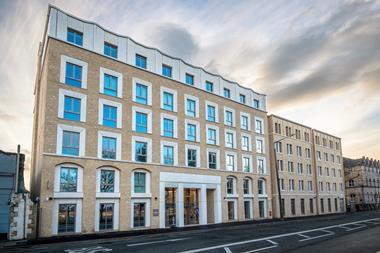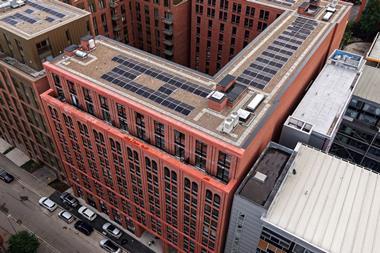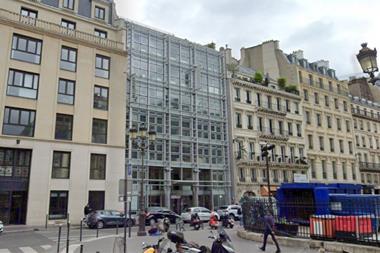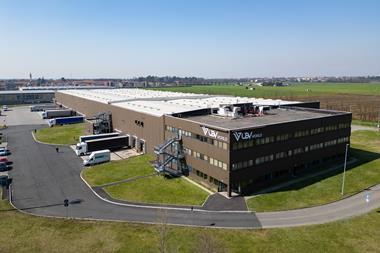Greece offers interesting opportunities but they are small, and landlord-tenant law poses additional challenges, as Ian Cundell reports
Greece is a textbook study of the economic idea of comparative advantage, which calls for countries to play to their strengths, to specialise. Something in the order of a fifth of world shipping is owned by Greek families, some 3,000 ships. It is a phenomenon so notable that it even has its own Wikipedia page.
One practical result of this is a high proportion of high-net-worth individuals needing somewhere to place their money. James Ward, head of international client services at CBRE in Athens, says: "Greece has a strong domestic investment market with most property privately owned."
For the international investors, Greece presents some interesting challenges. Ward says: "It's a market where there is not a huge amount of large lot size investments," adding that "landlord and tenant law gives a two and a half year break that is then rolling." The relative lack of institutional grade opportunities, combined with the ability of your cashflow to walk away at the drop of a hat, could be off-putting.
Yet there are opportunities, with retail often leading the way. Sonae Sierra and UK-based Rockspring plan to open a €76.1m shopping centre in Larissa in October. Sonae Sierra said each of the partners has a 50% stake in the Pantheon Plaza shopping centre, that it has already let over 85% of the shopping centre's gross lettable area of 27,000m2 and that the centre will host 120 stores.
Further, Marks & Spencer, has bought 50% of existing joint venture partner Marks & Spencer Marinopoulos BV, which operates stores for the retailer in Greece and other markets, for £38m (€48m) to lead an expansion in central and eastern Europe.
The deal fits in with Marks & Spencer's plans to invest in its existing franchise partners to grow its international business to constitute up to 20% of the group's revenues within the next five years.
Retail leading the way should not be surprising: Athens retail rents are among the highest in Europe.
But the fact remains that Greece is still a developing real estate market. In 2000 prime yields were 9.5% and by the end of 2007 these had fallen to 6.5% - although with no significant transaction recently the true market position is hard to judge.
"Investors have to accept that they won't have the level of transparency that they are used to" [in mature markets], says Ward. And even the notion of ‘prime' needs to be re-evaluated: an office building, say, might be a perfectly acceptable building, but the local infrastructure will not necessarily be what is expected in a prime market. "Greece is not an especially planned economy," says Ward.
That said, adds Ward, those funds that have ventured into Greece have been very happy. "Once you have bought, you are seen as a serious player," he says "But you must accept the landlord and tenant law and take good advice."
Up-to-date analysis is thin on the ground. The table shows the most recent market data. Last year local consultant Danos & Associates found that demand for office use had stabilised since 2006, "while supply of used offices is still stable but relatively high to that of new offices", with prime office rent is holding steady at around €336/m2.
A key trend, similar to Italy, is for companies to consider locations outside the traditonal office districts, which has hit the rents attainable for older buildings while boosting new building. However, Danos notes that developers still show a strong preference for pre-leasing and are generally reluctant to build speculative offices.
Retail rents in prime streets were sustained at high levels during the third quarter of 2007. Electric appliances chain Electro World (part of the UK's DSG International) opened its second store in Athens (and third in Greece).
SpriderStores is planning to expand its network in Greece (with a target of 85 stores) and abroad with 25 stores by 2011. The company recently announced the opening of two new stores in Thessaloniki and Rethymno, reaching 51 stores in Greece.
Habitat has reopened in Greece under the operation of YalcoOmnishop.Yalco is planning to operate three shops in a shop and two independent Habitat stores by the end of 2009.
Industrial and warehouse sector is a rapidly developing market, according to Danos. Major infrastructure projects in Attica combined with the new legislation and incentives for the development of large logistic centres, gave a boost to demand for the creation of new spaces and infrastructure. A number of occupiers are searching for large plots of 10,000-30,000m2, claims Danos.
The European Investment Bank has allocated around €3m for the improvement of the operational efficiency of the Greek Ports, while the Greek Rail Organisation, is also trying to attract international investment demand for the development of key distribution hubs in both Athens and Thessaloniki, planned to be completed by the end of 2008.
New legislation and incentives are planned for the development of larger than 100,000m2 distribution centres across the country, which is expected to boost development activity and the interest of private investors. In Athens, the availability of modern accommodation is limited and the pipeline is restricted, as the current planning regime needs to be adapted to the needs of this type of development.












